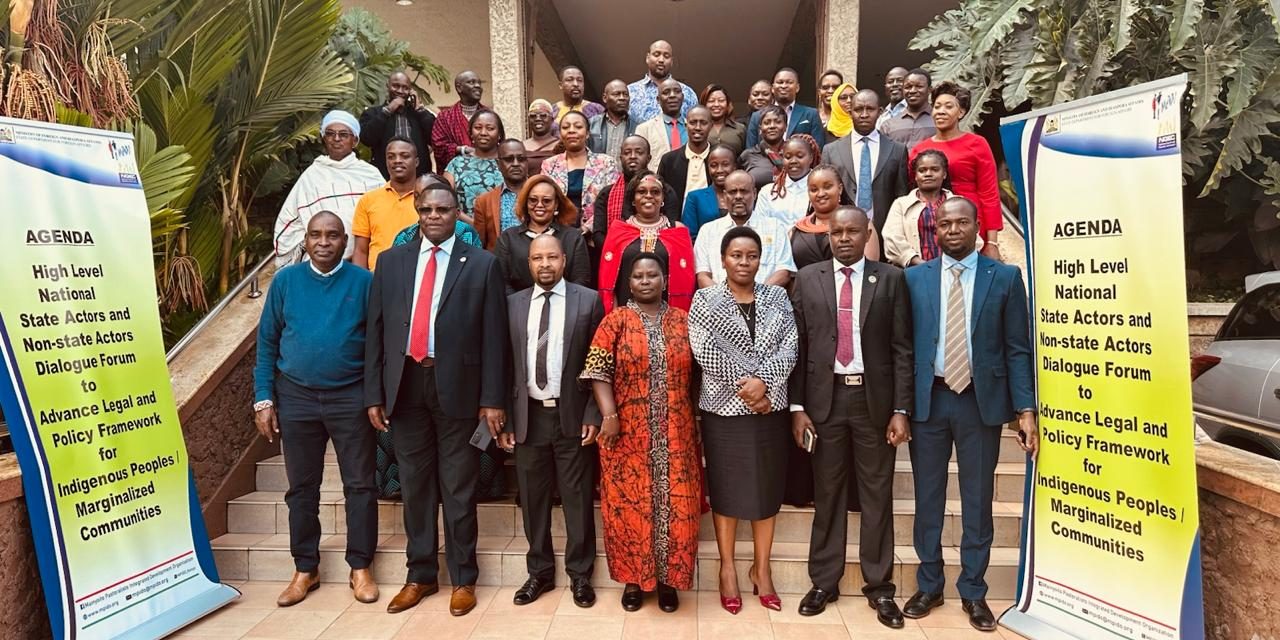On March 17, 2025, the members of the SWT (Samburu Women Trust) and the IWC (Indigenous Women Council) were honored to participate in an important event – the Consultative Forum on the Legal and Policy Framework for Marginalized Communities in Kenya. This event marked a significant step forward in the collective efforts to ensure that Kenya’s marginalized communities, especially indigenous peoples, are heard, represented, and granted the legal recognition they deserve.
The Significance of the Forum
The forum’s primary objective is to initiate a robust and meaningful conversation surrounding the development of a legal and policy framework tailored to the needs and aspirations of marginalized communities in Kenya. These communities often find themselves on the periphery of mainstream political, economic, and social frameworks, making it crucial to develop policies that not only address their unique challenges but also empower them to thrive within the larger national context.
Kenya, with its rich cultural diversity, is home to several indigenous and marginalized communities whose voices are frequently overshadowed in the face of development agendas that fail to acknowledge their distinct ways of life. As such, the legal framework under discussion seeks to safeguard their rights, promote their cultural heritage, and provide them with opportunities for sustainable development.
A New Beginning for Marginalized Communities
The forum provided a platform for stakeholders, including government representatives, civil society organizations, legal experts, and members of marginalized groups, to come together and discuss solutions to challenges such as land rights, education, healthcare, and cultural preservation.
For years, indigenous and marginalized communities in Kenya have fought for recognition, equal opportunities, and justice. The discussions at this consultative forum emphasized the importance of creating a legal structure that respects the values, traditions, and lifestyles of these communities while also integrating them into the national fabric in a meaningful way.
The discussions were both insightful and hopeful, focusing on how the government can better recognize the rights and aspirations of these communities. Among the key topics discussed were:
- Land Rights and Ownership: Indigenous peoples often face challenges in securing their land rights, which are essential for their cultural identity and livelihood.
- Cultural Preservation: The forum emphasized the importance of preserving the traditions, languages, and customs of marginalized groups.
- Access to Basic Services: Health, education, and infrastructure development in marginalized areas often fall behind, and there was a strong call to address these disparities.
- Political Representation: Many indigenous communities lack adequate political representation, leading to the exclusion of their voices from key national decisions.
Our Hopes and Prayers for the Future
As participants in this important dialogue, the SWT and IWC members expressed hope that the Kenyan government will honor the aspirations of indigenous peoples and marginalized communities in the country. Their dreams are not of special treatment, but of fair and equal opportunities to live, thrive, and contribute to the nation, just as any other community.
It is crucial that the development of a legal framework goes beyond mere consultation and is translated into actionable policies that reflect the realities and needs of marginalized groups. This includes a commitment to:
- Respecting Indigenous Knowledge: Indigenous knowledge systems are invaluable, particularly in areas such as conservation, agriculture, and health. A legal framework that supports the preservation and integration of this knowledge into the national discourse will benefit not just these communities, but Kenya as a whole.
- Empowering Marginalized Groups: The legal framework must include specific provisions to empower marginalized groups economically, socially, and politically, allowing them to take part in decision-making processes and hold positions of influence.
- Enforcing Legal Protections: It is not enough to create laws if they are not enforced. There must be mechanisms in place to ensure that marginalized communities’ rights are upheld, that discrimination is combated, and that the legal framework is continually updated to meet their evolving needs.
Conclusion
The Consultative Forum on the Legal and Policy Framework for Marginalized Communities in Kenya is a groundbreaking event that signals the beginning of a long-overdue dialogue on how to protect and promote the rights of indigenous and marginalized communities in Kenya. As the discussions continue, it is our sincere hope that the government of Kenya will listen attentively to the voices of these communities and take meaningful action to ensure that their rights, cultures, and aspirations are respected and realized.
For now, we remain hopeful, prayerful, and committed to working together with all stakeholders to ensure a more inclusive and equitable future for Kenya’s marginalized and indigenous communities. This forum represents not just a step forward but a commitment to a more just and inclusive Kenya, where no one is left behind.







